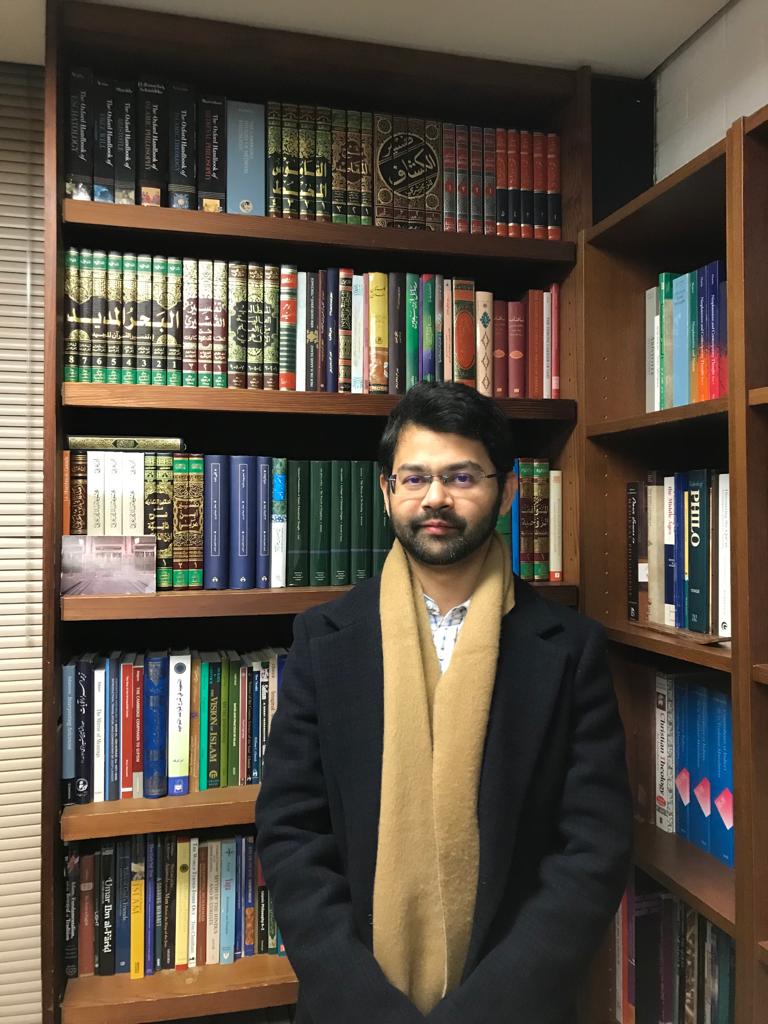On WEDNESDAY, November 15, at 7:00 pm, in Sussman Theater (Olmsted Center), Muhammad Faruque, the Inayat & Ishrat Malik Assistant Professor at the University of Cincinnati, and author of Sculpting the Self: Islam, Selfhood, and Human Flourishing (Michigan, 2021), will speak on “Immortality through AI? Transhumanism, Human Nature, and Islamic Philosophy.”
Muhammad U. Faruque is Assistant Professor and a Taft Center Fellow at the University of Cincinnati. He also holds a Visiting Scholar position at Harvard University. His highly acclaimed book Sculpting the Self (University of Michigan Press, 2021) addresses “what it means to be human” in a secular, post-Enlightenment world by exploring notions of selfhood and subjectivity in Islamic and non-Islamic literatures, including modern philosophy and neuroscience. Dr. Faruque is the author of three books and over forty-five academic articles, which have appeared (or are forthcoming) in numerous peer-reviewed journals. He gives public lectures on a wide range of topics such as climate change, AI, ethics, and selfhood. He is also a recipient of numerous awards, grants, and fellowships, including the prestigious Templeton Foundation Global Philosophy of Religion grant and the Title IV Grant, U.S. Dept. of Education.
Immortality through AI? Transhumanism, Human Nature, and the Quest for Spiritual Machines
In a series of publications such as The Age of Intelligent Machines (1990), The Age of Spiritual Machines (1999), and The Singularity Is Near (2005), the MIT-trained futurist and entrepreneur Ray Kurzweil argues that at some point in the not-too-distant future, there will be a merger between human intelligence and machine intelligence which is going to create artificial super-intelligence (ASI). Moreover, he envisions a transhumanist future in which technology will enable human beings to transcend the human condition by way of the Singularity (i.e., merging human intelligence with machine intelligence). According to Kurzweil and other transhumanists, the Singularity will generate many solutions to human limitations including the problem of aging. Drawing on Islamic philosophers’ insights on human nature, I first analyze and then argue against Kurzweil and others’ reductionist views of consciousness. In contrast to most contemporary theories of consciousness that either treat it as an epiphenomenon or psychologize it in terms of qualia and subjective feel, I argue that consciousness forms the bedrock of reality, which is at once self-luminous and self-cognizant. The problem of AI and transhumanism ultimately hinges on how we define our values, selfhood, and personhood, which are the ultimate determinants of what it means to be human in a google-driven world.

See below for a recording of Dr. Faruque’s PPT presentation and audio:
Below, please find a response to Dr. Faruque’s lecture by Seth Villegas.

